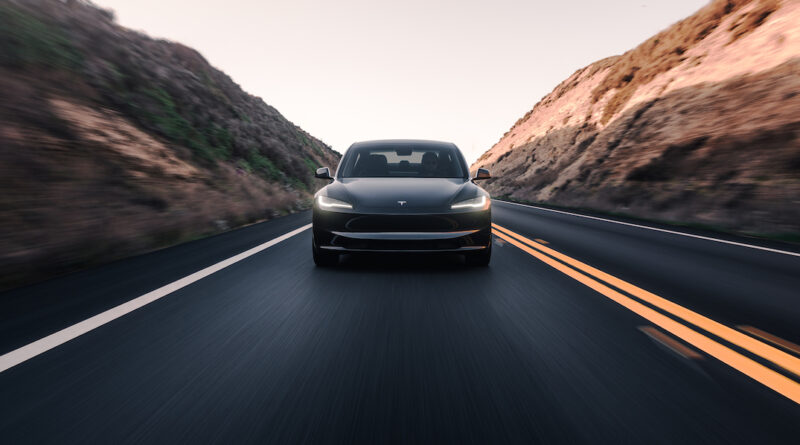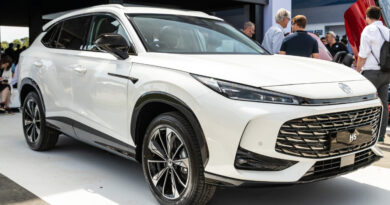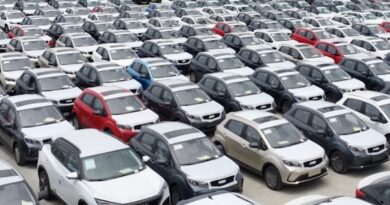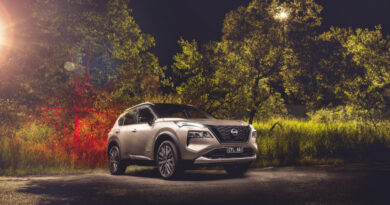Don’t believe the haters: Why rumours of Tesla’s impending death have been greatly exaggerated
Rely on the headlines and you’d be forgiven for thinking Tesla is about to fizzle out in an electrified puff as quickly as it arrived on the car scene.
It’s turbulent times for the brand that has reshaped the industry with its electric car offerings.
In the past few months Tesla sales globally have dropped for the first time since 2020, the share price has taken a hit, revenue has fallen and the company has announced it is shedding 10 per cent of its work force.
READ MORE: Tesla Model 3 Performance review
READ MORE: 2024 Tesla Model 3 Long Range review: 331 reasons the dual motor is worth the extra spend
READ MORE: 2025 Tesla Cybertruck driven: Here’s what you need to know about the giant electric ute for Australia
But what’s really going on at Tesla?
Is this just business as normal, a bit of a problem or even an existential event as some people predict?
We’re thinking there are issues here, but getting too negative is going too far. Tesla has its problems, but it also has some very strong positives.
A bit of perspective
It’s worth putting everything into perspective.
Tesla is still the world’s most valuable car maker according to stockmarket capitalisation.
It’s also still highly profitable, albeit making less per car now than it was last year.
It’s the world’s biggest manufacturer of EVs (as per Q1 2024).
In Australia Tesla only sells two models: the Model 3 and Model Y.
And its sales are still growing.
So what if the share price is down?
Here’s the thing, Tesla’s share price has long been overvalued, at least by traditional car company standards.
When it topped US$1 trillion in 2021 it was essentially factoring in anticipated revenue from autonomous driving functionality, which for all brands – Tesla included – is running years late. It could still be a decade or more away.
That stratospheric valuation was also when Musk was talking of building 20 million cars annually by the end of the decade (double what Toyota does), a target that seems as optimistic as finding a politician that actually answers questions.
Besides, from a consumer perspective the share price is a moot point.
We suspect there wouldn’t be too many Toyota buyers aware or even remotely concerned if the share price had been sliding for a few weeks.
Nor should they be.
And for what it’s worth, the value of Tesla is still about 70 per cent higher than Toyota, which sells about five times more vehicles.
In other words, there’s an argument the Tesla share price has further to drop. Or Toyota more to climb.
But wait…
From a consumer perspective it’s also worth taking a step back.
Tesla’s sales in Australia grew 135 per cent in 2023 compared with 2022, yet its EV share dropped from 59 per cent to 53 per cent.
Blame it on competition. There are now more EV options – and a lot more EV buyers, with the electric car market up 32 per cent in the first four months of 2024.
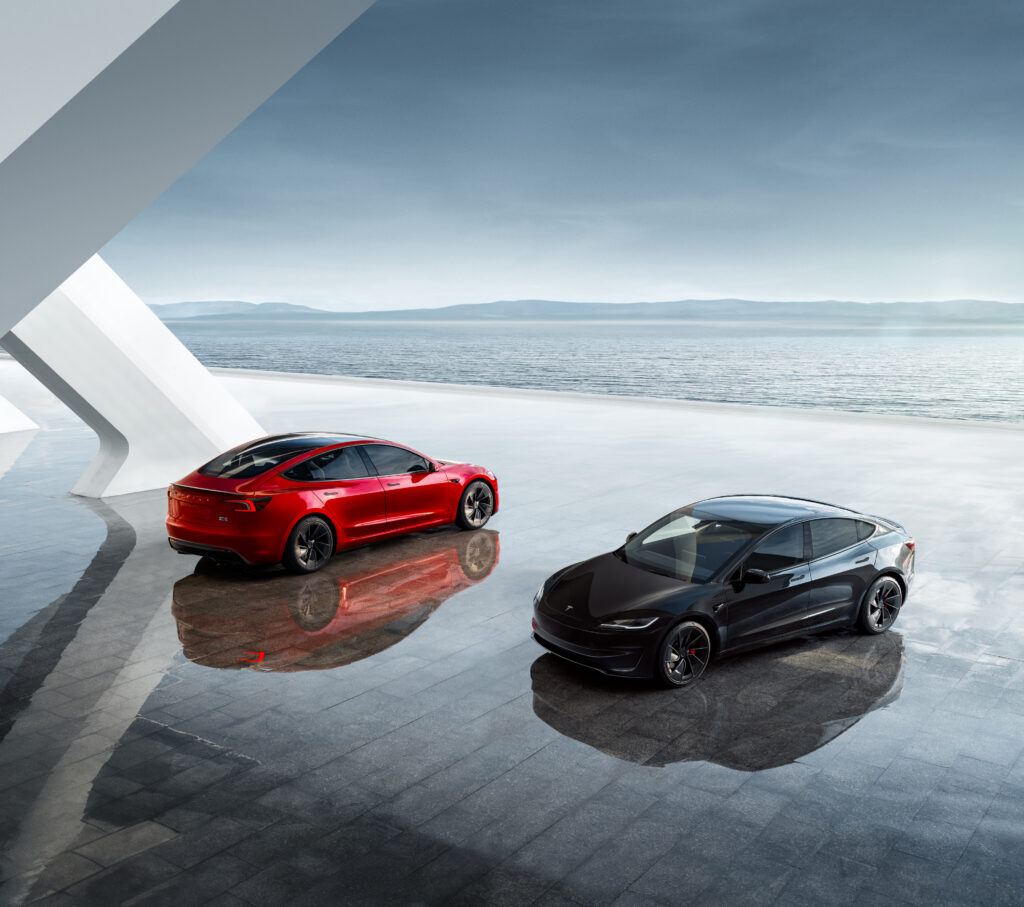
But there are also still plenty of people buying Teslas – and paying good money for them.
Tesla is still the dominant EV brand here.
In the first four months of 2024 Tesla sales are up 5.6 per cent and it commanded 47 per cent of all EV sales.
In comparison, the early days of Toyota’s first EV – the bZ4X – have seen it capture about 2 per cent of the EV share.
Given the trust so many place in Toyota and the dominance of its sales across most of the market it’s an interesting dilemma for the brand.
Ultimately, though, the car market isn’t that difficult: buyers choose the vehicles they think are best for them. Build a better car and they will buy.
In short, Tesla is producing the EVs more Aussies want to buy. And it’s doing it with cars that all cost upwards of $60,000.
Will that change in future?
Absolutely. It has to.
Toyota, Mazda, Hyundai, Volkswagen, Ford and others will eventually build EVs the masses want to buy.
And that’s before we consider the tsunami of new Chinese brands looking to steal a slice of the Tesla share Down Under.
Zeekr, Lynk & Co, Leapmotor and Xpeng are some of the early combatants.
And, of course, BYD has huge aspirations for growing its sales locally, all of which could cut into the Tesla share.
Out in the open
One of the things that’s caught the headlines in recent months are Tesla price cuts, both here and overseas.
But it’s worth remembering that because of Tesla’s sales model – direct to consumers rather than through dealers – it needs to be more overt in its price changes.
Whereas the big brands can hide discounts in demonstrator vehicles or with dealer-level specials, Tesla has to woo the masses with a chop to the headline new car price.

The result is often similar – consumers pay less – but when it’s front and centre on your website it can attract predictions of doom and gloom.
Besides, many EV rivals have also seen some significant price cuts recently.
There are clear challenges
That’s not to say there isn’t some doom and gloom bubbling away in the Tesla crystal ball.
There’s recently been a focus on the Supercharger network following reports future development was being halted.
Tesla last week emailed owners reassuring them that “the Supercharger network is still core to Tesla’s mission” and that it “will continue to be expanded”.
Tesla doesn’t do itself any favours making bold promises and constantly missing timelines.
Take the on-again, off-again, on-again Model 2, or the litany of broken promises and missed deadlines for its other promised models.
Witness its autonomous driving tech – as with all car makers, Musk overpromised — and then the brand attempted to use its own owners to finish its development, risking the lives of not only Tesla drivers but other road users too.
There’s also been growing scrutiny concerning quality issues — a continuing thorn in the side of the car maker that even affects its latest flagship, the Cybertruck.

Could money have been better spent replacing the ageing Model S or introducing a more relevant model, such as a sub-$40K small car?
Time will no doubt tell.
Perhaps the biggest (recent) regret Musk may have, other than sinking US$44 billion ($68b) into Twitter, was waging a price war in China, a battle he could not possibly ever win against the state-backed local opposition.
The rise of China is real and the country’s expertise in EVs is starting to pay serious dividends.
Storm clouds could be brewing
The bigger concern for Tesla is arguably the smart people it’s axed in recent months. They include Australian Daniel Ho, who was featured by EV Central only weeks ago, and Drew Baglino one of the few Tesla executives apart from Musk to have real public profile.
A car company kicks goals because of the people who create the machines that buyers want to drive.
Musk has created a culture of innovation and challenging the status quo.
He valued software when others rolled the arm. He encouraged the company to produce more of the car in-house, reducing what is paid to suppliers. And he showed the world how to make electric cars highly desirable, to the point where young kids now dream of owning a Tesla in the same way they may previously have dreamt of a Ferrari or Lamborhini.
There have been plenty of fails along the way, but looking at Tesla as a whole you’d argue the successes outweigh those stumbles, even factoring in the broken promises.
Perhaps that culture of pushing the boundaries and over promising is what got Tesla to where it is now?
The question is more whether buyers will forgive the brand for its missteps.
Moving forward
And, of course, how Tesla continues to kick goals in years to come.
Too big to fail? Many have suggested that the amount invested in Tesla will sustain it and the brand will recover with the inevitable new product.
Musk is clearly betting the kitchen sink – and more – on driverless tech.
If Tesla can make that work where the world’s biggest car makers have so far failed it could help Musk build on his flawed genius status.
If not, Tesla may have to learn to behave more like a traditional car maker.
That could be scary…
Additional reporting: John Mahoney

